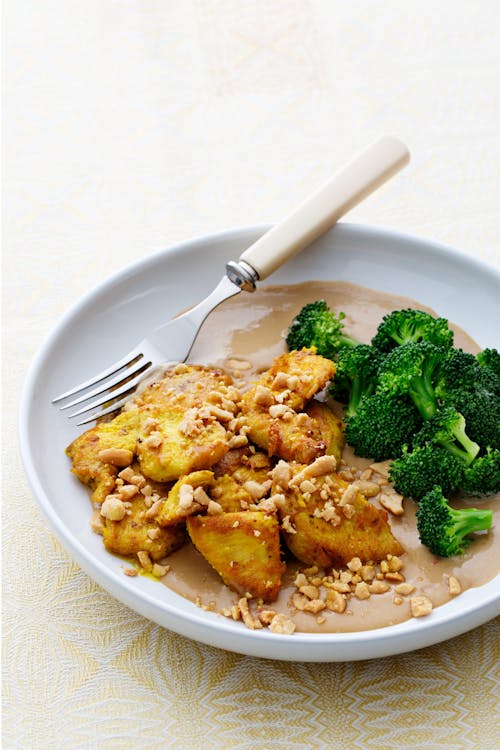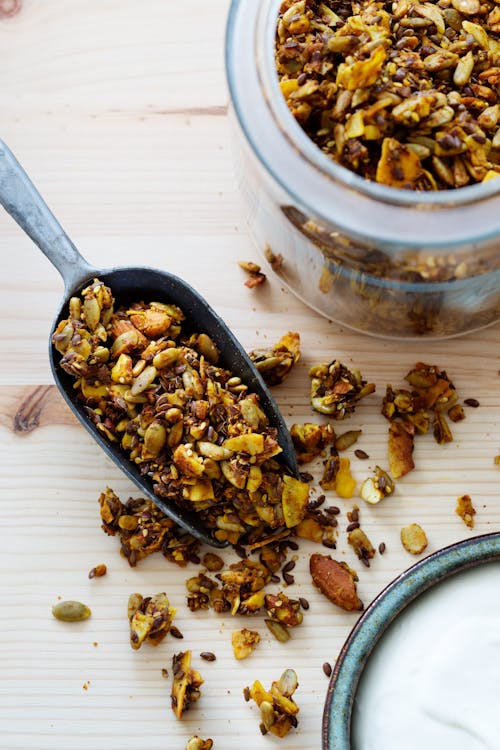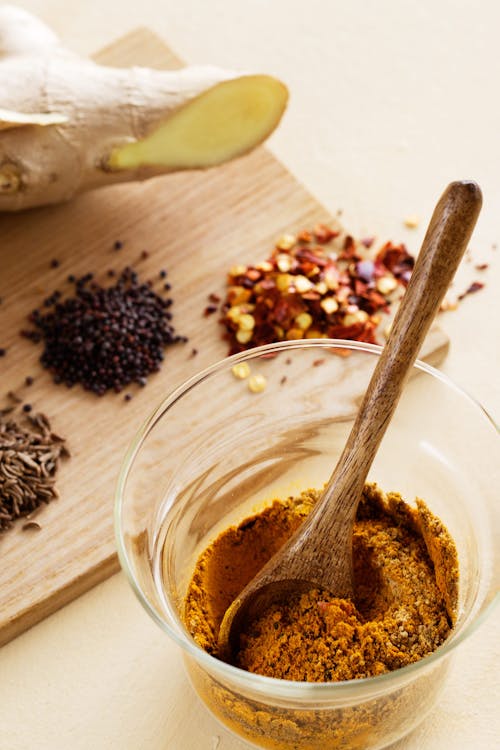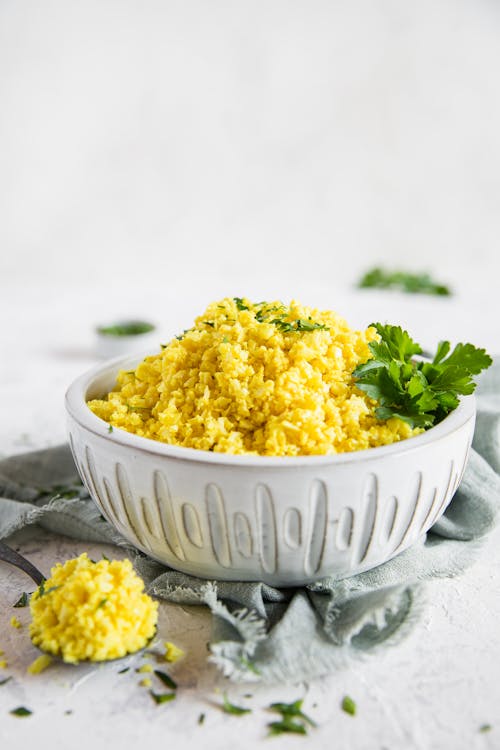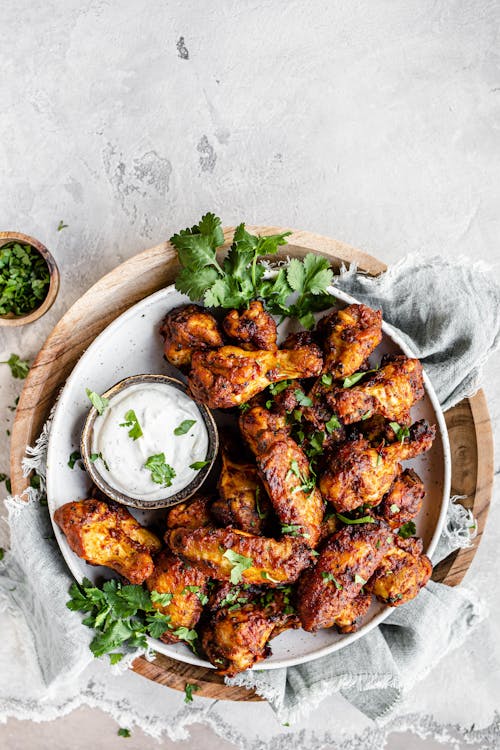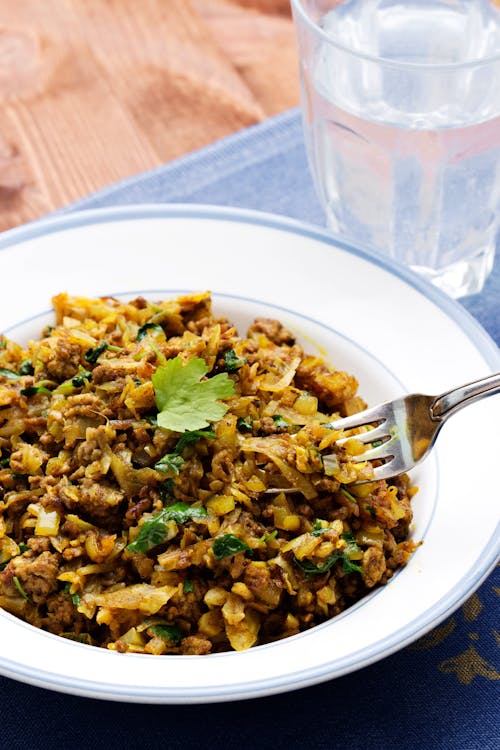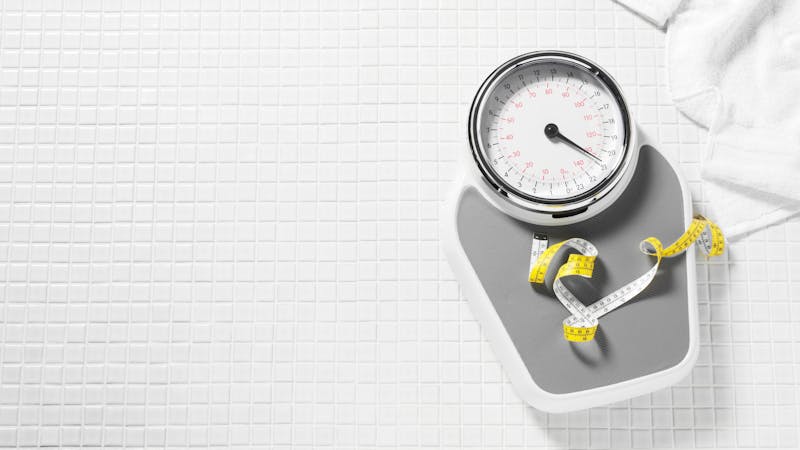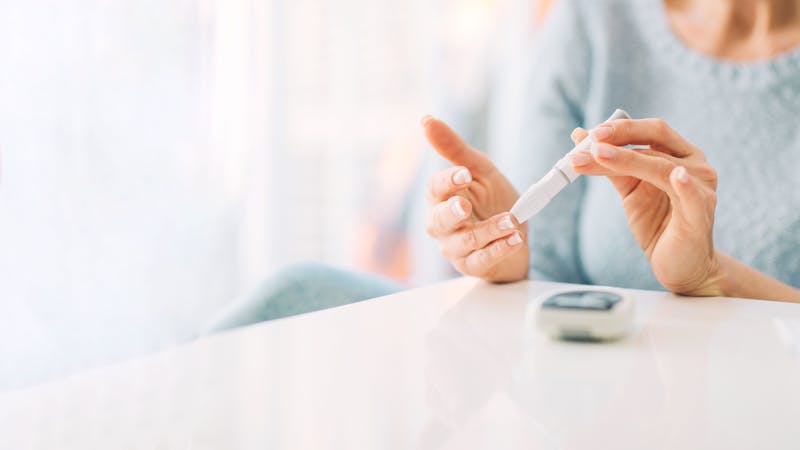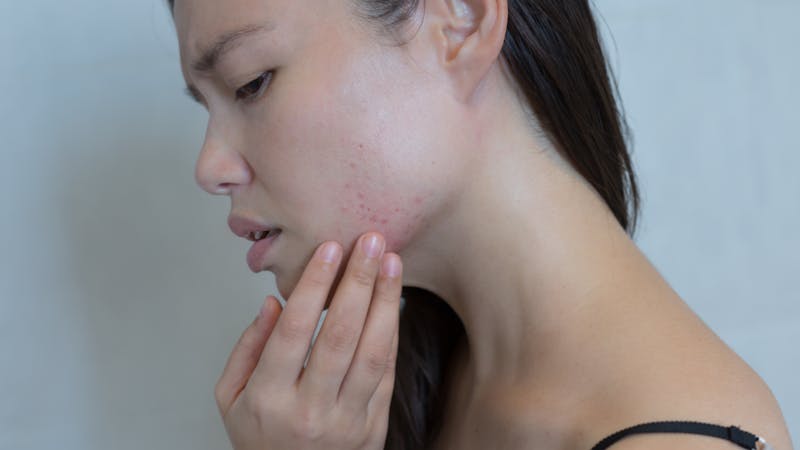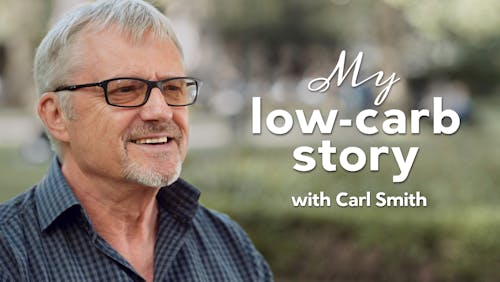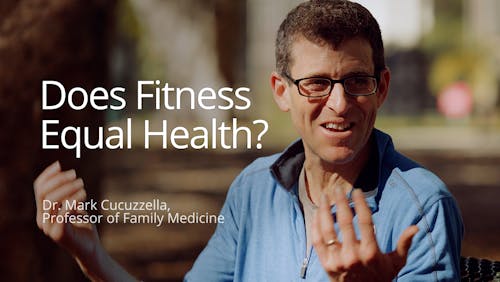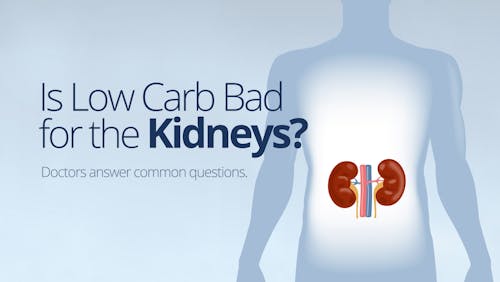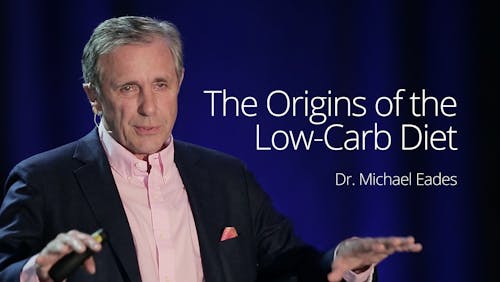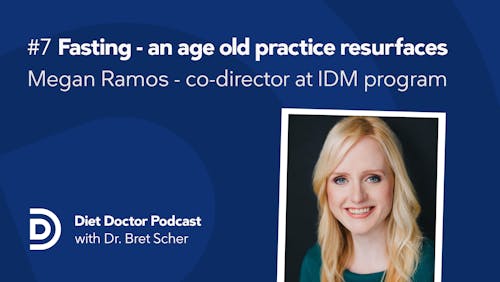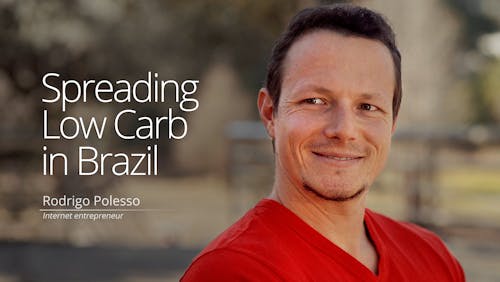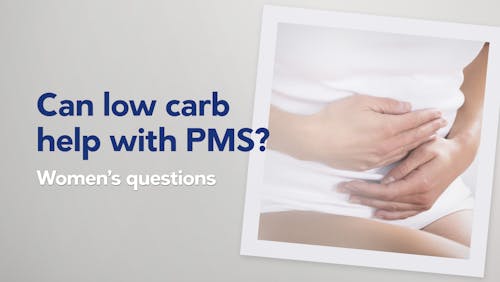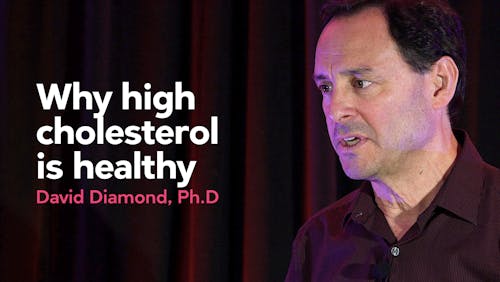9 potential health benefits of turmeric and curcumin
Turmeric — the bright yellow spice used in many Asian and Middle Eastern dishes — has been credited with some impressive health benefits, such as weight loss and arthritis pain relief. While strong scientific evidence supports some of these effects, others require more research.
Read on to learn about the potential health benefits of turmeric, whether you should consider taking it, and how to do so safely and effectively.
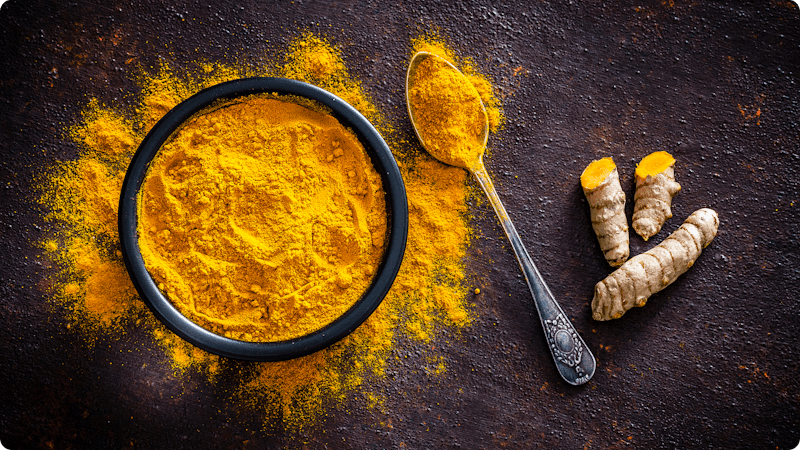
Key takeaways
Turmeric may provide several beneficial health effects. Turmeric contains curcumin, which may slightly boost weight loss, decrease inflammation, reduce certain risk factors for heart disease, and provide other health benefits. Learn moreIs taking turmeric safe? Studies suggest that most people can safely take turmeric or curcumin supplements. However, people with medical conditions need to speak with their doctor first. Some individuals, such as those on blood thinners, should avoid taking it altogether. Learn more
Turmeric dosage and helpful tips. For best results, take 500 to 1,000 mg of turmeric extract or curcumin per day with meals that contain some fat. If you take more than 500 mg per day, split the doses between the morning and the evening. Learn more

What is turmeric?
Turmeric comes from the plant known as Curcuma longa, which is native to India and Southeast Asia. Although it belongs to the ginger family, it’s sometimes referred to as “Indian saffron.”
Turmeric root is ground into a powdered spice that adds a vibrant golden color, peppery flavor, and an earthy aroma to curries and other exotic dishes.
Turmeric contains phytochemicals (“plant chemicals”) called curcuminoids, which give the spice its bright color. The main one, curcumin, is considered turmeric’s “active ingredient” and has been linked to health benefits.
However, turmeric spice only provides a small amount of curcumin. Pure turmeric powder contains around 3% curcumin, on average, and curry blends have even less.1
It’s estimated that people in India get approximately 2,000 to 2,500 mg of tumeric and 60 to 100 mg of curcumin per day from their diet.2
In recent years, special formulations called “turmeric extracts” were developed. These highly concentrated extracts often contain up to 95% curcumin. For instance, a 500 mg capsule of turmeric extract may provide 475 mg of curcumin. You can also take isolated curcumin supplements.
Most researchers use turmeric extracts or isolated curcumin to test its effects on health. In this guide, turmeric and curcumin’s benefits are discussed interchangeably.
Here is our review of nine potential uses of turmeric. Click on the topic you are interested in to go straight to it, or read them all for the most comprehensive review.
- Weight loss
- Inflammation
- Heart health
- Arthritis
- Fatty liver
- Blood sugar
- Muscle pain
- Inflammatory bowel disease
- Skin
1. Can turmeric help you lose weight?
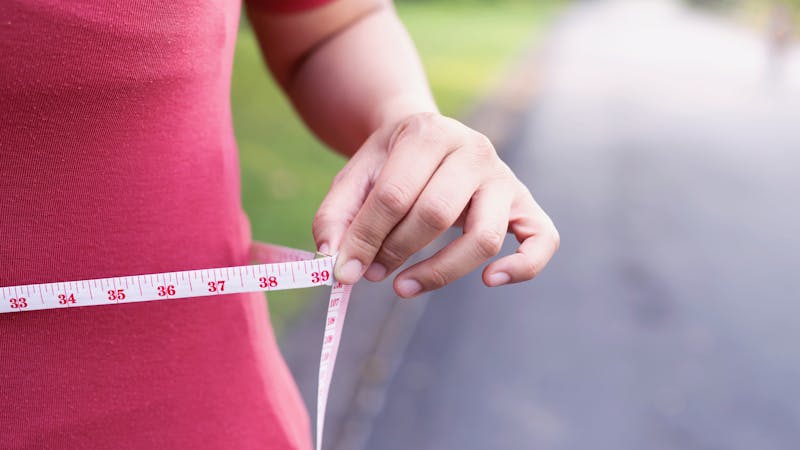



In a review of 11 clinical trials, researchers concluded that taking curcumin led to an average loss of 2.5 pounds (1.14 kilos) in people who were overweight or at high risk of type 2 diabetes.3
So far, only one study has shown rapid weight loss with curcumin supplementation: a 2015 randomized trial in 44 people with metabolic syndrome who were already on a weight loss diet.
In this study, participants lost an average of 3.5 pounds (1.6 kilos) by eating a low-calorie diet for 30 days. After they added 800 mg of curcumin to the same dietary regimen for the next 30 days, they lost an average of 9 more pounds (4.1 kilos) and 1.6 inches (4.1 cm) from their waist.4
In most trials, researchers told people not to make any changes to their usual diet or physical activity while taking turmeric or curcumin; weight loss results from those studies are mixed.
In one trial, 240 people at risk for type 2 diabetes took 1,500 mg of curcumin per day or a placebo. After nine months, participants in the curcumin group lost an average of 8.5 pounds (3.9 kilos) and 1.4 inches (3.6 cm) from their waist. Those in the placebo group slightly gained weight and increased their waist size.5
Other trials in which people were asked not to make changes to their usual diet or exercise habits have shown weight loss, although to a lesser degree.6
In some studies, people who took turmeric or curcumin didn’t lose weight, despite having beneficial changes to certain heart health markers, such as lower triglycerides.7
It’s possible that taking curcumin may help you lose a small amount of weight and slightly reduce your waist size. However, this doesn’t seem to happen for everyone, and it’s not clear what makes it more likely to be effective.
Fortunately, many people can lose weight without medications or supplements. The key is making lifestyle changes that lead to successful weight loss. For instance, there is strong evidence that following a low-carb diet and prioritizing high-protein foods can help you lose weight.8
Typical dosages used in trials that evaluated weight loss: 500 to 2,000 mg of curcumin per day.
Summary
Taking curcumin or turmeric may potentially help you lose a small amount of weight. However, results from trials have been mixed.
2. Does turmeric reduce inflammation?




However, in some cases inflammation can become chronic due to stress, illness, or lifestyle factors. Sustained, low-level inflammation has been linked to heart disease, diabetes, cancer, and other conditions.9 Keeping inflammation under control may lead to healthier aging.10
Animal and human research spanning decades suggests that curcumin may help reduce inflammation.11 More recently, high-quality clinical trials have demonstrated curcumin’s anti-inflammatory effects.
In several trials of people with chronic disease, curcumin has been shown to decrease markers of inflammation in the blood, including C-reactive protein (CRP), Interleukin-6 (IL-6), and tumor necrosis factor-α (TNF).12
In 2015, researchers reported that when people with metabolic syndrome took 1,000 mg of curcumin for eight weeks, they lowered their CRP levels by an average of 2.12 mg/dL. By contrast, those who took a placebo had no change in CRP. 13
However, one review found that in some trials, taking turmeric or curcumin didn’t drastically reduce CRP or other inflammatory markers in people who had rheumatoid arthritis, advanced kidney disease, and heart disease.14
Typical dosages used in trials that evaluated changes in inflammatory markers: 250 to 1,500 mg of curcumin per day.
Summary
The research to date suggests that taking curcumin may help lower inflammatory markers in people with metabolic disease and other chronic diseases in many but not all cases.
3. Can turmeric improve heart health?




Arterial function
Healthy arteries ensure consistent blood flow that delivers essential nutrients, hormones, and other substances to your muscles, brain, and other organs. Damage to the inner layer of the arteries — due to high blood sugar or other causes — plays a large role in heart disease.15
According to high-quality research, curcumin helps protect this inner layer, which enables the arteries to remain wide open as blood passes through them.16
In a 12-week trial, arterial function improved equally among postmenopausal women who either took 150 mg of curcumin daily or performed aerobic exercise at least three times a week.17
In an eight-week trial in people with type 2 diabetes, taking 300 mg of curcumin per day led to similar improvements in arterial function and inflammatory markers compared to taking a statin drug.18
Although curcumin may improve arterial health, it doesn’t seem to help lower blood pressure much. Two 2019 reviews of clinical trials found that curcumin had little to no effect on blood pressure overall.19
Fortunately, you can lower your blood pressure by making lifestyle changes.
Lipids
Many trials demonstrate that curcumin can help reduce triglycerides in people with metabolic syndrome, type 2 diabetes, or heart disease.20
Curcumin might also reduce low-density lipoprotein (LDL) cholesterol in some people. In 2017, researchers who analyzed seven studies concluded that curcumin may be useful for people at increased risk of heart disease who have elevated LDL cholesterol.21
A more recent review found that curcumin significantly lowered LDL cholesterol and triglycerides in people with type 2 diabetes or metabolic syndrome. Results varied widely among studies, though. The best results were seen in trials where people took at at least 300 mg of curcumin per day for eight weeks or longer.22
However, curcumin may not improve all heart health markers.
For instance, in an eight-week study of people with metabolic syndrome, all participants received general health advice. Those who took 1,000 mg of curcumin daily lowered their LDL cholesterol levels. Yet changes in levels of small, dense LDL — the type with the strongest link to heart disease — were similar among those who took curcumin and those who took a placebo.23
Read our complete guide to learn about other ways to lower cholesterol.
Typical dosages used in trials that evaluated changes in heart health: 80 to 2,000 mg of curcumin per day.
Summary
Taking curcumin has been shown to improve arterial health and lower triglycerides and LDL cholesterol in several trials. However, curcumin seems to have little to no effect on blood pressure and small, dense LDL.
4. Turmeric may improve symptoms of arthritis




The most common type, osteoarthritis, is sometimes referred to as “wear and tear” arthritis that happens with age. The knees, hips, and neck are often affected, although it can occur in any joint.
According to reviews of clinical trials, taking turmeric extract or curcumin seems to be as effective for relieving arthritis pain as non-steroidal anti-inflammatory drugs (NSAIDs), such as aspirin or ibuprofen.24
One trial reported additional benefits to taking curcumin for arthritis symptoms, compared to taking medication.
In this study, 139 people with knee osteoarthritis took 1,500 mg of curcumin or an NSAID for 28 days. By the end of the trial, pain relief was similar among both groups, but the curcumin group had fewer digestive side effects compared to the NSAID group. Another bonus? They lost an average of 2.2 pounds (1 kilo).25
Although curcumin supplementation hasn’t been studied much in people who have the autoimmune disease known as rheumatoid arthritis, early research suggests it may be beneficial for this condition.
In a 2017 trial, people with rheumatoid arthritis who took 250 or 500 mg of curcumin daily for three months had significant improvement in their symptoms and decreases in markers of inflammation, compared to those who took a placebo.26 An earlier trial also showed that taking 500 mg of curcumin per day helped improve rheumatoid arthritis symptoms.27
Typical dosages used in trials that evaluated changes in arthritis symptoms: 250 to 2,000 mg curcumin per day.
Summary
In trials, curcumin has been found to be as effective for relieving osteoarthritis pain as non-steroidal anti-inflammatory drugs (NSAIDs). Early research suggests it may also improve some symptoms of rheumatoid arthritis.
5. Is turmeric beneficial for fatty liver disease?
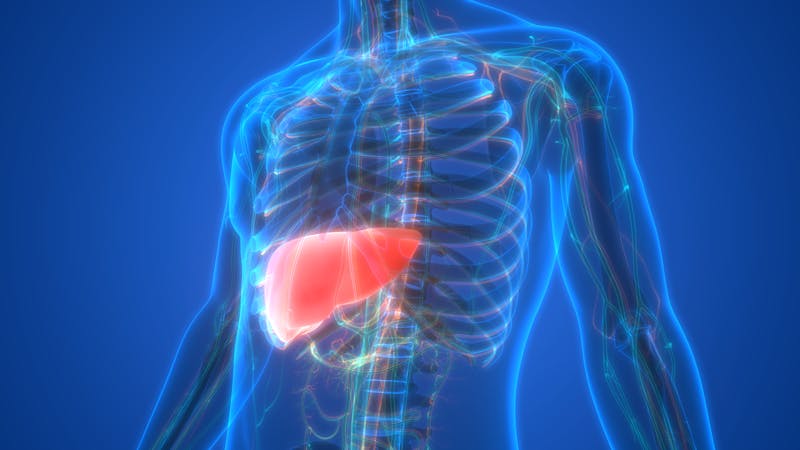



One-third of people with this condition end up progressing to severe liver damage. People with fatty liver also have a much higher chance of developing type 2 diabetes and heart disease.28 Can taking turmeric or curcumin help?
Strong research demonstrates that taking turmeric or curcumin may reduce liver enzyme levels in people with NAFLD.29
A 2020 review of nine clinical trials found that curcumin not only decreased liver enzyme levels but also reduced fasting blood sugar, insulin resistance, and waist size in those with NAFLD.30
In a smaller review of four trials from 2020, people with NAFLD who took curcumin for eight to 12 weeks reduced their waist size by an average of 0.8 inches (2.12 cm).31 However, in some trials, waist size decreased significantly, while others reported no changes in waist size.
In one of the few curcumin studies that measured liver fat changes in people with NAFLD, participants who took 70 mg of curcumin per day for eight weeks experienced a 79% reduction in liver fat, whereas those who took a placebo had a 27.5% reduction in liver fat.32
By contrast, a more recent trial found that taking 1,500 mg of curcumin daily in combination with making lifestyle changes did not reduce liver fat or other markers of liver health any more than making lifestyle changes alone.33
Like much of the research on curcumin, results in those with NAFLD are mostly encouraging but not entirely consistent across studies.
However, making lifestyle changes can be very helpful for liver disease. What kind of lifestyle changes? As one example, following a keto or low-carb diet has been shown to improve — and in some cases even reverse — non-alcoholic fatty liver disease.
Typical dosages used in trials that evaluated changes in NAFLD symptoms: 250 to 3,000 mg of curcumin per day.
Summary
Strong research suggests that taking curcumin may potentially reduce liver enzymes and markers of insulin resistance in people with non-alcoholic fatty liver disease. Yet it is not clear whether it provides further benefits when added to making lifestyle changes.
6. Does turmeric reduce blood sugar and insulin levels?




Some studies suggest that taking turmeric or curcumin may lower hemoglobin A1c (HbA1c) — a long-term measure of blood sugar control – and fasting blood sugar levels in people with type 2 diabetes.
In one review of 11 clinical trials, taking curcumin decreased people’s fasting blood sugar levels by 8.8 mg/dL (0.5 mmol/L) and their HbA1c by 0.5%, on average.35 However, results varied among the different trials.
Several trials that tested curcumin or turmeric supplementation in people with type 2 diabetes found no benefits for blood sugar levels, even though triglycerides and some other health markers improved.36
Because curcumin may potentially lower blood sugar, it’s important to speak with your doctor about taking it if you are on insulin or insulin-stimulating medications (e.g. sulfonylureas). Combining curcumin with these medications could cause your blood sugar to drop too low.37
Early research suggests that taking 300 to 1,500 mg of curcumin per day may reduce insulin levels and improve insulin resistance in people with type 2 diabetes and in women with polycystic ovary syndrome (PCOS).38 However, more studies are needed to confirm these effects.
What else can you do to lower your blood sugar and insulin levels? Strong science confirms that eating a keto or low-carb diet can reliably reduce blood sugar and insulin levels in people with type 2 diabetes.39
Typical dosages used in trials that evaluated blood sugar and insulin changes: 250 to 4,000 mg of curcumin per day.
Summary
Taking curcumin may potentially help lower blood sugar and insulin levels slightly in some people. However, trial results have been mixed.
7. Can turmeric reduce sports-related muscle pain?




Interestingly, Japanese researchers who conducted small trials in healthy young men reported that taking curcumin both before and after exercise may provide different beneficial effects.
In these 2019 trials, taking 180 mg of curcumin daily for several days before exercising reduced inflammatory markers in the blood. By contrast, taking the same curcumin dose daily for several days after exercising resulted in less muscle soreness and greater range of motion, compared to taking a placebo.41
However, in some trials, curcumin had little effect on exercise-related muscle soreness, even at high dosages.
In a 2017 trial, athletes who took 6,000 mg of curcumin for two days before and two days after strenuous exercise experienced slightly less muscle damage but no reduction in muscle soreness compared to those who took a placebo.42
Typical dosages used in trials that evaluated changes in sports-related symptoms: 180 to 6,000 mg of curcumin per day.
Summary
Research suggests that taking curcumin for several days before exercise may help reduce inflammation, whereas taking it for several days after exercise may help reduce muscle soreness. However, this has not been demonstrated in every trial.
8. Turmeric may improve symptoms of inflammatory bowel disease
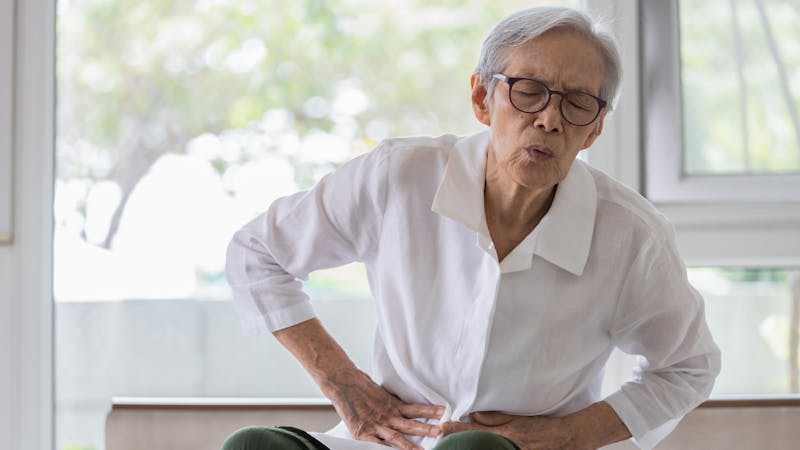



The two forms of IBD are ulcerative colitis, which affects the large intestine, and Crohn’s disease, which can impact any portion of the digestive tract. However, it most commonly affects the small intestine.
People treat IBD with medication, diet, stress management, and in some cases, surgery. The goal of therapy is clinical remission, meaning all symptoms have either resolved or improved dramatically.
Research suggests that turmeric or curcumin may help relieve IBD symptoms and increase the likelihood of remission when combined with conventional treatment.
Researchers who conducted recent reviews of clinical trials in patients with ulcerative colitis found that those who took curcumin with mesalamine — an anti-inflammatory medication specifically for ulcerative colitis — were three to nearly seven times as likely to achieve remission compared to those who took mesalamine with a placebo.43
In one trial of 50 people whose ulcerative colitis symptoms hadn’t improved with mesalamine, 54% of those who added 3,000 mg of curcumin to their mesalamine regimen experienced clinical remission, which did not occur in any participants who took a placebo.44
One recent review of clinical trials found that while curcumin appears to be a safe and effective therapy for people with ulcerative colitis, there isn’t enough high-quality evidence yet to support its use in people with Crohn’s disease.45
Although the results of curcumin supplementation are encouraging in IBD patients, improvement hasn’t been consistent across studies. A 2020 review of clinical trials concluded that the mixed results may be related to different dosages, formulations and treatment durations.46
Typical dosages used in trials that evaluated changes in IBD symptoms: 250 to 3,000 mg of curcumin per day.
Summary
In several trials, curcumin has been shown to significantly improve symptoms of inflammatory bowel disease (IBD). Although taking curcumin appears to be safe for people with IBD, more research is needed to determine the optimal effective dosage, formulation, and duration of treatment.
9. Is turmeric beneficial for acne and other skin conditions?
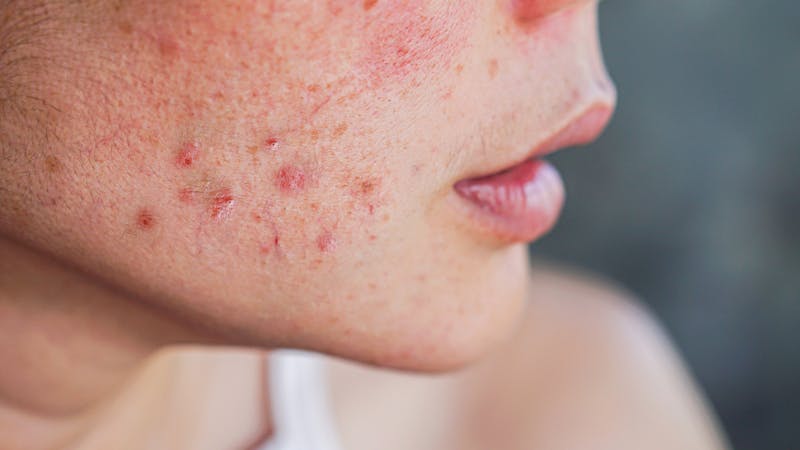



Early evidence from clinical trials suggests that taking turmeric or curcumin orally may be beneficial for certain skin conditions, including psoriasis and lichen planus, an inflammatory autoimmune skin condition.48
In a 12-week trial of 63 people with psoriasis, those who added 2,000 mg of curcumin per day to standard treatment experienced a dramatic reduction in skin redness, thickness, and scaling, along with a decrease in inflammatory markers.49
One research team tested curcumin in 20 people with oral lichen planus, a chronic inflammatory condition that affects mucous membranes inside the mouth. They found that taking 6,000 mg of curcumin daily for two weeks led to significant improvement in symptoms compared to taking a placebo.50
Although some of the research on curcumin for treating certain skin conditions is promising, there haven’t been many studies, and those that exist have been small. More high-quality trials are needed.
At this time, taking curcumin for acne lacks evidence. However, following a low-carb diet may provide relief from breakouts in some people.
Typical dosages used in trials that evaluated changes in skin: 600 to 6,000 mg of curcumin per day.
Summary
Taking curcumin may be beneficial for reducing symptoms of psoriasis and oral lichen planus. However, more high-quality trials testing its effects on these and other skin conditions are needed.
Turmeric is safe for most people
The US Food and Drug Administration (FDA) has approved curcumin as “Generally recognized as safe” (GRAS).
Research suggests that taking turmeric or curcumin is safe for most people, even at high dosages.51
In small trials of people with cancer, taking up to 8,000 mg of curcumin daily for three months did not lead to toxicity or harmful effects.52
Side effects of turmeric or curcumin are uncommon and usually mild. In some trials, taking curcumin — especially doses larger than 1,000 mg per day — led to diarrhea and headaches in a minority of people.53
Serious side effects are very rare. In a severe example, a man who took 3,000 to 4,500 mg of curcumin daily developed an abnormal heart rhythm that resolved once he discontinued taking the supplement.54
Additionally, a few case reports describe elevated liver enzymes and hepatitis in people who took between 500 and 1,125 mg of curcumin daily for one to five months. In each case, symptoms resolved after the supplement was discontinued.55
Some people should not take turmeric or curcumin, including:
- People who take blood thinners or have bleeding disorders
- Women who are pregnant or breastfeeding
- People with a history of kidney stones56
- People with a history of gallbladder disease57
- People with iron-deficiency anemia 58
It’s important to discuss turmeric or curcumin with your doctor if you take any medications, including but not limited to diabetes medications.
Additionally, you should stop taking turmeric or curcumin at least two weeks before surgery to prevent excess bleeding.
Turmeric dosage: how much to take?
Researchers have used turmeric extracts providing 100 mg to 6,000 mg of curcumin per day, or the same dosage as isolated curcumin. However, studies did not always show a consistent dose-related effect.59
In some cases, higher doses produced better results, while in others, comparable results were achieved with lower doses. Interestingly, lower doses of curcumin sometimes outperformed higher doses.
Also, some curcumin formulations used in studies were designed to make it easier for your body to absorb and use it.60
Because side effects seem to be more frequent and severe at higher dosages, it’s best to take the lowest effective dose. If you decide to take it, we recommend taking between 500 to 1,000 mg of turmeric extract or curcumin per day.
Important tips:
- If you take more than 500 mg of curcumin per day, split doses between the morning and evening. For a 1,000 mg daily dose of curcumin, you’d take 500 mg in the morning with breakfast and 500 mg in the evening with dinner.
- Curcumin is fat-soluble. That means your body will absorb it much better if you take it with a meal that contains some fat. You don’t need a lot of fat, though. About a tablespoon of oil — or the fat that’s naturally present in a serving of red meat, cheese, or nuts — will do.
- Piperine (black pepper) can help your body use curcumin more effectively.61 Many but not all turmeric and curcumin supplements contain piperine, which can also be purchased separately as 5 to 10 mg capsules.
- Choose a supplement from a reputable company that has been tested by US Pharmacopeial Convention (USP) or NSF International. You can find this information on the label of the container.
Should you take turmeric or curcumin?
Taking turmeric or curcumin may be beneficial for many conditions. It may promote weight loss, decrease inflammation, lower blood sugar, and even reduce triglycerides.
Many studies have confirmed that turmeric is generally safe and well-tolerated in most people. It is easy to take with few side effects. Turmeric extract and isolated curcumin are also relatively inexpensive.
However, there are no guarantees that it will provide the effects you want.
Be sure to discuss turmeric or curcumin with your doctor, especially if you take medication or have a chronic disease or medical condition.
Get instant access to healthy low-carb and keto meal plans, fast and easy recipes, weight loss advice from medical experts, and so much more. A healthier life starts now with your free trial!
Recipes with turmeric
Start your FREE 7-day trial!
Health
9 potential health benefits of turmeric and curcumin - the evidence
This guide is written by Franziska Spritzler, RD and was last updated on June 19, 2025. It was medically reviewed by Dr. Bret Scher, MD on April 6, 2021 and Dr. Michael Tamber, MD on March 11, 2022.
The guide contains scientific references. You can find these in the notes throughout the text, and click the links to read the peer-reviewed scientific papers. When appropriate we include a grading of the strength of the evidence, with a link to our policy on this. Our evidence-based guides are updated at least once per year to reflect and reference the latest science on the topic.
All our evidence-based health guides are written or reviewed by medical doctors who are experts on the topic. To stay unbiased we show no ads, sell no physical products, and take no money from the industry. We're fully funded by the people, via an optional membership. Most information at Diet Doctor is free forever.
Read more about our policies and work with evidence-based guides, nutritional controversies, our editorial team, and our medical review board.
Should you find any inaccuracy in this guide, please email andreas@dietdoctor.com.
Nutrition and Cancer 2006:
Curcumin content of turmeric and curry powders [nutrient analysis; ungraded] ↩Journal of Traditional and Complementary Medicine 2016: Biological activities of curcuminoids, other biomolecules from turmeric and their derivatives – A review [overview article; ungraded] ↩
Additionally, waist size decreased by an average of 1 to 1.5 inches (2.55 to 3.71 cm) in those who were overweight and those who took at least 1,000 mg of curcumin daily for eight weeks or more:
Critical Reviews in Food Science and Nutrition 2020: The effects of curcumin supplementation on body weight, body mass index and waist circumference: a systematic review and dose-response meta-analysis of randomized controlled trials [strong evidence]
An earlier review covering several of the same studies found that curcumin helped people with metabolic syndrome lose weight and slightly decrease their waist size:
Frontiers in Pharmacology 2019: The effects of curcumin on weight loss among patients with metabolic syndrome and related disorders: a systematic review and meta-analysis of randomized controlled trials [strong evidence] ↩
European Review for Medical and Pharmacological Sciences 2015: Potential role of bioavailable curcumin in weight loss and omental adipose tissue decrease: preliminary data of a randomized, controlled trial in overweight people with metabolic syndrome. Preliminary study [moderate evidence] ↩
Diabetes Care 2012:Curcumin extract for prevention of type 2 diabetes [randomized trial; moderate evidence] ↩
In a 2019 study, people with type 2 diabetes who took 2,100 mg of turmeric per day for eight weeks lost 4 pounds (1.8 kilos), whereas those who took a placebo gained 4.5 pounds (2.1 kilos):
Phytotherapy Research 2019:Effect of turmeric on glycemic status, lipid profile, hs‐CRP, and total antioxidant capacity in hyperlipidemic type 2 diabetes mellitus patients [randomized trial; moderate evidence]
In another trial from 2019, people with type 2 diabetes who took 1,500 mg of curcumin per day for 10 weeks lost 2.2 pounds (1 kilo), compared to no change in weight in those who received a placebo:
Diabetology & Metabolic Syndrome 2019:The effect of curcumin supplementation on anthropometric indices, insulin resistance and oxidative stress in patients with type 2 diabetes: a randomized, double-blind clinical trial [moderate evidence] ↩
For instance, in a 2014 trial, people with metabolic syndrome took 1,900 mg of curcumin or a placebo for 12 weeks. Although weight remained stable in both groups, triglycerides decreased by 65 mg/dL (0.73 mmol/L) in those who took curcumin, compared to 15 mg/dL (0.17 mmol/L) in those who took a placebo:
Phytotherapy Research 2014:Lipid-lowering effects of curcumin in patients with metabolic syndrome: a randomized, double-blind, placebo-controlled trial
[moderate evidence].Other studies have shown similar results:
In a 2013 trial, obese adults who took 1,000 mg of curcumin for 30 days reduced their triglycerides slightly but did not lose any weight:
Phytotherapy Research 2013:Effects of supplementation with curcuminoids on dyslipidemia in obese patients: a randomized crossover trial
[moderate evidence]In a 2014 trial, people with metabolic syndrome, who took 1,000 mg of curcumin for eight weeks, did not lose weight. However, they improved their triglycerides, low-density lipoprotein (LDL) cholesterol, and high-density lipoprotein (HDL) cholesterol levels compared to the group who took a placebo:
Complementary Therapies in Medicine 2014:Lipid-modifying effects of adjunctive therapy with curcuminoids-piperine combination in patients with metabolic syndrome: results of a randomized controlled trial [moderate evidence] ↩
PLoS One 2015: Dietary intervention for overweight and obese adults: Comparison of low-carbohydrate and low-fat diets. A meta-analysis [strong evidence]
The British Journal of Nutrition 2016: Effects of low-carbohydrate diets v. low-fat diets on body weight and cardiovascular risk factors: a meta-analysis of randomised controlled trials [strong evidence]
Obesity Reviews 2016: Impact of low-carbohydrate diet on body composition: meta-analysis of randomized controlled studies [strong evidence]
Journal of the American College of Nutrition 2004: The effects of high protein diets on thermogenesis, satiety and weight loss: a critical review [systematic review of randomized trials; strong evidence] ↩
Nature Medicine 2019: Chronic inflammation in the etiology of disease across the life span[review article; ungraded] ↩
Federation of European Biochemical Societies Journal 2020: Regulation of inflammation as an anti-aging intervention[review article; ungraded] ↩
International Journal of Biochemistry and Cell Biology 2009: Potential therapeutic effects of curcumin, the anti-inflammatory agent, against neurodegenerative, cardiovascular, pulmonary, metabolic, autoimmune and neoplastic diseases[review article; ungraded] ↩
Phytotherapy Research 2019: The effects of curcumin-containing supplements on biomarkers of inflammation and oxidative stress: A systematic review and meta-analysis of randomized controlled trials [strong evidence]
Pharmacological Research 2016: Effect of curcumin on circulating interleukin-6 concentrations: A systematic review and meta-analysis of randomized controlled trials [strong evidence]
Pharmacological Research 2016: Curcumin downregulates human tumor necrosis factor-α levels: A systematic review and meta-analysis of randomized controlled trials [strong evidence] ↩
Clinical Nutrition 2015: Antioxidant and anti-inflammatory effects of curcuminoid-piperine combination in subjects with metabolic syndrome: A randomized controlled trial and an updated meta-analysis [moderate evidence] ↩
Pharmacological Research 2019: Oral turmeric/curcumin effects on inflammatory markers in chronic inflammatory diseases: A systematic review and meta-analysis of randomized controlled trials [strong evidence] ↩
Circulation Research 2016: Endothelial cell dysfunction and the pathobiology of atherosclerosis [review article; ungraded] ↩
Complementary Medicine Research 2020: Curcumin preparations can improve flow-mediated dilation and endothelial function: A meta-analysis [systematic review of randomized trials; strong evidence]
Phytotherapy Research 2019: The effects of curcumin supplementation on endothelial function: A systematic review and meta-analysis of randomized controlled trials [strong evidence] ↩
Nutrition Research 2012: Curcumin ingestion and exercise training improve vascular endothelial function in postmenopausal women [randomized trial; moderate evidence] ↩
Drugs in Research and Development 2008: Effect of NCB-02, atorvastatin and placebo on endothelial function, oxidative stress and inflammatory markers in patients with type 2 diabetes mellitus: a randomized, parallel-group, placebo-controlled, 8-week study [moderate evidence] ↩
In a 2019 review of 11 randomized trials, taking turmeric or curcumin was found to have virtually no effect on blood pressure, other than lowering systolic blood pressure by an average of 1.24 mm Hg in studies lasting at least 12 weeks:
Pharmacological Research 2019: The effect of curcumin/turmeric on blood pressure modulation: A systematic review and meta-analysis [strong evidence]
In a 2019 review of seven trials testing curcumin in people with metabolic syndrome, only three trials reported changes in blood pressure. In an analysis of those three trials, systolic blood pressure decreased by an average of 1.68 mm Hg and diastolic blood pressure decreased by an average of 2.96 mm Hg:
Phytotherapy Research 2019: Metabolic benefits of curcumin supplementation in patients with metabolic syndrome: A systematic review and meta-analysis of randomized controlled trials [strong evidence] ↩
Critical Reviews in Food Science and Nutrition 2019: Lipid-modifying activity of curcuminoids: A systematic review and meta-analysis of randomized controlled trials [strong evidence] ↩
Nutrition Journal 2017: Efficacy and safety of turmeric and curcumin in lowering blood lipid levels in patients with cardiovascular risk factors: a meta-analysis of randomized controlled trials [strong evidence] ↩
Advances in Nutrition 2019: A systematic review and meta-analysis of randomized controlled trials on the effects of turmeric and curcuminoids on blood lipids in adults with metabolic diseases [strong evidence] ↩
Complementary Therapies in Medicine 2014:Lipid-modifying effects of adjunctive therapy with curcuminoids-piperine combination in patients with metabolic syndrome: results of a randomized controlled trial [moderate evidence] ↩
BMJ Open Sport and Exercise Medicine 2021: Therapeutic effects of turmeric or curcumin extract on pain and function for individuals with knee osteoarthritis: a systematic review [systematic review of randomized trials; strong evidence]
Journal of Medicinal Food 2016: Efficacy of turmeric extracts and curcumin for alleviating the symptoms of joint arthritis: A systematic review and meta-analysis of randomized clinical trials [strong evidence] ↩
Trials Journal 2019:Safety and efficacy of curcumin versus diclofenac in knee osteoarthritis: a randomized open-label parallel-arm study
[moderate evidence] ↩Journal of Medicinal Food 2017:A novel highly bioavailable curcumin formulation improves symptoms and diagnostic indicators in rheumatoid arthritis patients: A randomized, double-blind, placebo-controlled, two-dose, three-arm, and parallel-group study [moderate evidence] ↩
Phytotherapy Research 2012:A randomized, pilot study to assess the efficacy and safety of curcumin in patients with active rheumatoid arthritis [moderate evidence] ↩
Diabetes Care 2018: Nonalcoholic fatty liver disease and risk of incident type 2 diabetes: A meta-analysis [systematic review of observational studies; weak evidence]
Journal of Hepatology 2016: Non-alcoholic fatty liver disease and cardiovascular risk: Pathophysiological mechanisms and implications[overview article; ungraded] ↩
Integrative Medicine Research 2019: Efficacy of curcumin/turmeric on liver enzymes in patients with non-alcoholic fatty liver disease: A systematic review of randomized controlled trials [strong evidence]
Phytotherapy Research 2019: Does turmeric/curcumin supplementation improve serum alanine aminotransferase and aspartate aminotransferase levels in patients with nonalcoholic fatty liver disease? A systematic review and meta-analysis of randomized controlled trials [strong evidence] ↩
Complementary Therapies in Medicine 2020: The effects of curcumin supplementation on liver function, metabolic profile and body composition in patients with non-alcoholic fatty liver disease: A systematic review and meta-analysis of randomized controlled trials [strong evidence] ↩
Phytotherapy Research 2020: The effects of curcumin supplementation on body mass index, body weight, and waist circumference in patients with nonalcoholic fatty liver disease: A systematic review and dose-response meta-analysis of randomized controlled trials [strong evidence] ↩
According to the authors, the curcumin was delivered in a suspension form to boost absorption, leading to significant results at a low dosage:
Phytotherapy Research 2016:Treatment of non-alcoholic fatty liver disease with curcumin: A randomized placebo-controlled trial [moderate evidence] ↩
BMC Gastroenterology 2019:Curcumin and inflammation in non-alcoholic fatty liver disease: a randomized, placebo controlled clinical trial [moderate evidence] ↩
This was demonstrated in people with type 2 diabetes who participated in long-term trials testing tight glycemic control:
The New England Journal of Medicine 2015:Follow-up of glycemic control and cardiovascular outcomes in type 2 diabetes [randomized trial; moderate evidence]
The New England Journal of Medicine 2008:10-year follow-up of intensive glucose control in type 2 diabetes [randomized trial; moderate evidence] ↩
Pharmacological Research 2018: Curcumin or combined curcuminoids are effective in lowering the fasting blood glucose concentrations of individuals with dysglycemia: Systematic review and meta-analysis of randomized controlled trials [strong evidence] ↩
In a 2019 study, people with type 2 diabetes who took 2,100 mg of turmeric per day for eight weeks lost 2.2 pounds (1 kilo) and reduced their triglyceride levels. Yet they had little to no change in blood sugar and insulin levels:
Phytotherapy Research 2019:Effect of turmeric on glycemic status, lipid profile, hs‐CRP, and total antioxidant capacity in hyperlipidemic type 2 diabetes mellitus patients [randomized trial; moderate evidence]
Other trials have shown similar results:
Lipids in Health and Disease 2019:Curcumin and/or omega-3 polyunsaturated fatty acids supplementation reduces insulin resistance and blood lipids in individuals with high risk of type 2 diabetes: a randomised controlled trial
[moderate evidence]Diabetology & Metabolic Syndrome 2019:The effect of curcumin supplementation on anthropometric indices, insulin resistance and oxidative stress in patients with type 2 diabetes: a randomized, double-blind clinical trial [moderate evidence] ↩
Phytotherapy Research 2014:Evaluation of the effect of curcumin capsules on glyburide therapy in patients with type-2 diabetes mellitus [randomized trial; moderate evidence] ↩
Molecular Nutrition and Food Research 2013:Curcuminoids exert glucose-lowering effect in type 2 diabetes by decreasing serum free fatty acids: a double-blind, placebo-controlled trial [moderate evidence]
Phytomedicine 2021:Effects of curcumin supplementation on blood glucose, insulin resistance and androgens in patients with polycystic ovary syndrome: A randomized double-blind placebo-controlled clinical trial [moderate evidence]
Complementary Therapies in Medicine 2019:The effects of curcumin supplementation on glycemic status, lipid profile and hs-CRP levels in overweight/obese women with polycystic ovary syndrome: A randomized, double-blind, placebo-controlled clinical trial [moderate evidence] ↩
Nutrients 2020: Impact of a ketogenic diet on metabolic parameters in patients with obesity or overweight and with or without type 2 diabetes: A meta-analysis of randomized controlled trials [strong evidence]
The American Journal of Clinical Nutrition 2018: Effects of low-carbohydrate- compared with low-fat-diet interventions on metabolic control in people with type 2 diabetes: a systematic review including GRADE assessments [strong evidence] ↩
Critical Reviews in Food Science and Nutrition 2020: Effects of curcumin supplementation on sport and physical exercise: a systematic review [systematic review of randomized trials; strong evidence]
Nutrients 2020: Modulation of exercise-induced muscle damage, inflammation, and oxidative markers by curcumin supplementation in a physically active population: A systematic review [systematic review of randomized trials; strong evidence]
Phytotherapy Research 2020: The effect of curcumin supplementation on recovery following exercise-induced muscle damage and delayed-onset muscle soreness: A systematic review and meta-analysis of randomized controlled trials
[strong evidence] ↩When 24 men took 180 mg of curcumin daily for seven days before eccentric exercise, they had fewer markers of inflammation and muscle damage compared to those who took a placebo, yet taking the same dosage daily after exercise did not lower inflammatory markers:
Scandinavian Journal of Medicine and Science in Sports
2019:Effects of oral curcumin ingested before or after eccentric exercise on markers of muscle damage and inflammation [randomized trial; moderate evidence]When another group of men took 180 mg of curcumin daily for four days after eccentric exercise, they had less soreness and greater range of motion compared to taking a placebo:
Journal of Nutritional Science and Vitaminology 2019:Effective timing of curcumin ingestion to attenuate eccentric exercise-induced muscle soreness in men [randomized trial; moderate evidence] ↩
Journal of Sport Science and Medicine 2017:Curcumin and piperine supplementation and recovery following exercise induced muscle damage: A randomized controlled trial [moderate evidence] ↩
Annals of Gastroenterology 2020: Curcumin use in ulcerative colitis: is it ready for prime time? A systematic review and meta-analysis of clinical trials [strong evidence]
The American Journal of Medical Sciences 2018: Use of curcumin in achieving clinical and endoscopic remission in ulcerative colitis: A systematic review and meta-analysis [systematic review of randomized trials; strong evidence] ↩
Clinical Gastroenterology and Hepatology 2015:Curcumin in combination with mesalamine induces remission in patients with mild-to-moderate ulcerative colitis in a randomized controlled trial [moderate evidence] ↩
Nutrients 2020: The use of curcumin as a complementary therapy in ulcerative colitis: A systematic review of randomized controlled clinical trials [strong evidence] ↩
Journal of Medicinal Food 2020: Effects of the use of curcumin on ulcerative colitis and Crohn’s disease: A systematic review [systematic review of randomized trials; strong evidence] ↩
Cellular and Molecular Life Sciences 2008: Curcumin: from ancient medicine to current clinical trials
[overview article; ungraded] ↩Critical Reviews in Food Science and Nutrition 2020:Benefits of turmeric supplementation for skin health in chronic diseases: a systematic review [systematic review of randomized and non-randomized clinical trials; moderate evidence]
Phytotherapy Research 2016: Effects of turmeric (Curcuma longa) on skin health: A systematic review of the clinical evidence [systematic review of randomized and non-randomized clinical trials; moderate evidence] ↩
BioMed Research International 2015:Oral curcumin (Meriva) Is effective as an adjuvant treatment and is able to reduce IL-22 serum levels in patients with psoriasis vulgaris [randomized trial; moderate evidence] ↩
Journal of the American Academy of Dermatology 2012:High-dose curcuminoids are efficacious in the reduction in symptoms and signs of oral lichen planus
[randomized trial; moderate evidence] ↩The Journal of Alternative and Complementary Medicine 2003: Safety and anti-inflammatory activity of curcumin: a component of turmeric (Curcuma longa) [review article; ungraded]
British Journal of Pharmacology 2017: Curcumin, the golden nutraceutical: multitargeting for multiple chronic diseases(Curcuma longa) [review article; ungraded] ↩
Anticancer Research 2001: Phase I clinical trial of curcumin, a chemopreventive agent, in patients with high-risk or pre-malignant lesions[non-controlled study; weak evidence]
Clinical Cancer Research 2006: Phase II trial of curcumin in patients with advanced pancreatic cancer[non-controlled study; weak evidence] ↩
In a study of 27 people who took up to 12,000 mg of curcumin per day, seven developed digestive upset or complaints at doses between 1,000 mg and 12,000 mg:
BMC Complementary and Alternative Medicine 2006: Dose escalation of a curcuminoid formulation[non-controlled study; weak evidence] ↩
International Journal of Cardiology 2011: Transient complete atrioventricular block associated with curcumin intake [case report; very weak evidence] ↩
Case Reports in Gastrointestinal Medicine 2019: Drug induced liver injury attributed to a curcumin supplement [case report; very weak evidence]
Case Reports in Hepatology 2019: Turmeric induced liver Injury: A report of two cases [case report; very weak evidence] ↩
Turmeric is high in oxalate, which could increase the risk of kidney stones in susceptible individuals:
The American Journal of Clinical Nutrition 2008:Effect of cinnamon and turmeric on urinary oxalate excretion, plasma lipids, and plasma glucose in healthy subjects [randomized trial; moderate evidence] ↩
Turmeric may cause gallbladder contractions, which could lead to increased pain when passing gallstones:
Asia Pacific Journal of Clinical Nutrition 2002:Effect of different curcumin dosages on human gallbladder [randomized trial; moderate evidence] ↩
Taking high amounts of turmeric might reduce iron absorption:
International Journal of Food Sciences and Nutrition 2009: Inhibitory effects of spices and herbs on iron availability [nutrient analysis; ungraded] ↩
Researchers, who conducted a review of nine randomized trials that tested curcumin in people with fatty liver disease, noted that doses of 500 mg or less seemed to be more effective than higher doses for lowering liver enzymes:
Complementary Therapies in Medicine 2020: The effects of curcumin supplementation on liver function, metabolic profile and body composition in patients with non-alcoholic fatty liver disease: A systematic review and meta-analysis of randomized controlled trials [strong evidence] ↩
Nutrition Journal 2014:Comparative absorption of curcumin formulations [randomized trial; moderate evidence] ↩
By inhibiting the breakdown of curcumin in the gut and liver, piperine increases the amount that remains in the body:
Planta Medica 1998: Influence of piperine on the pharmacokinetics of curcumin in animals and human volunteers[non-controlled study; weak evidence] ↩
